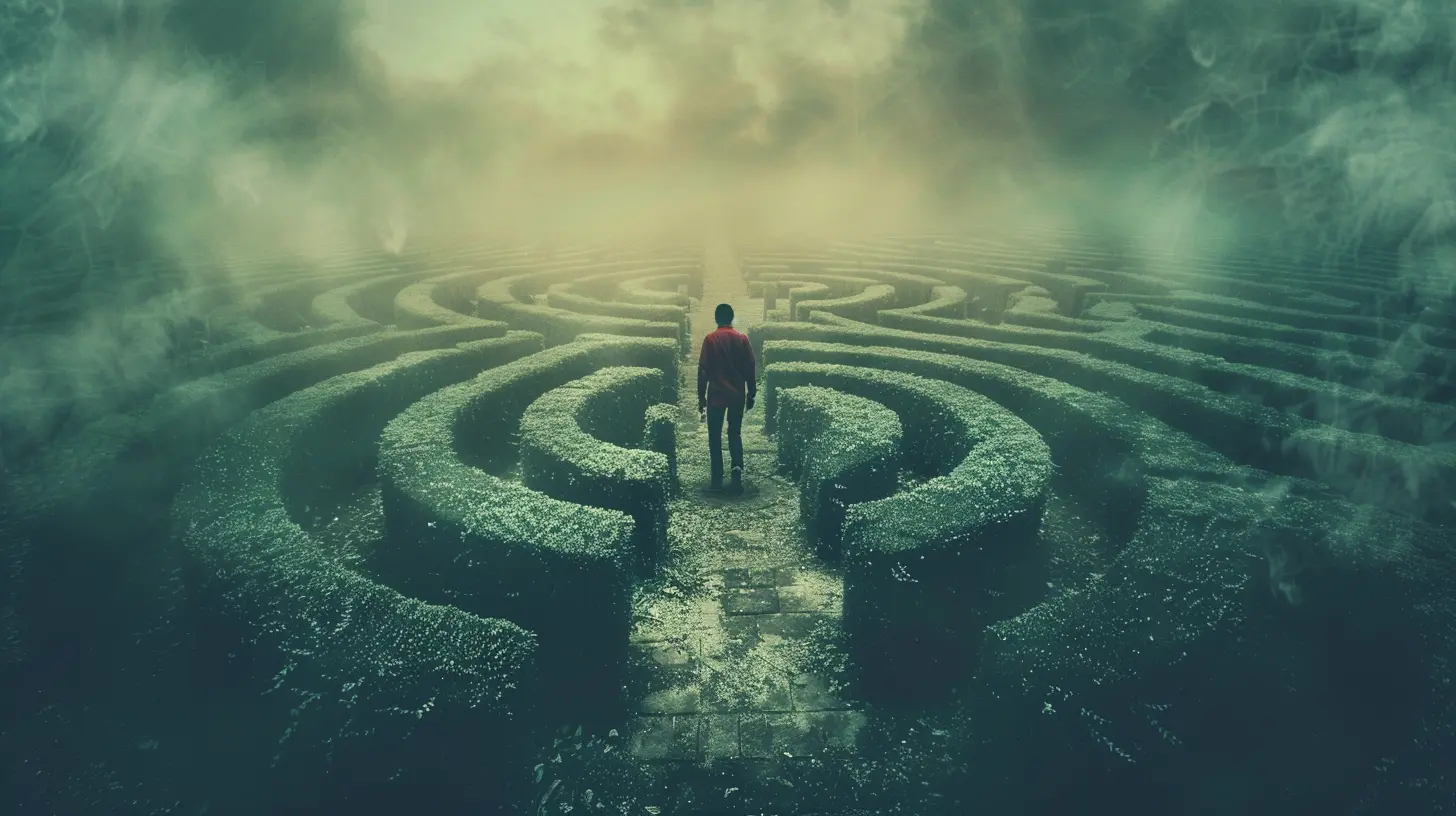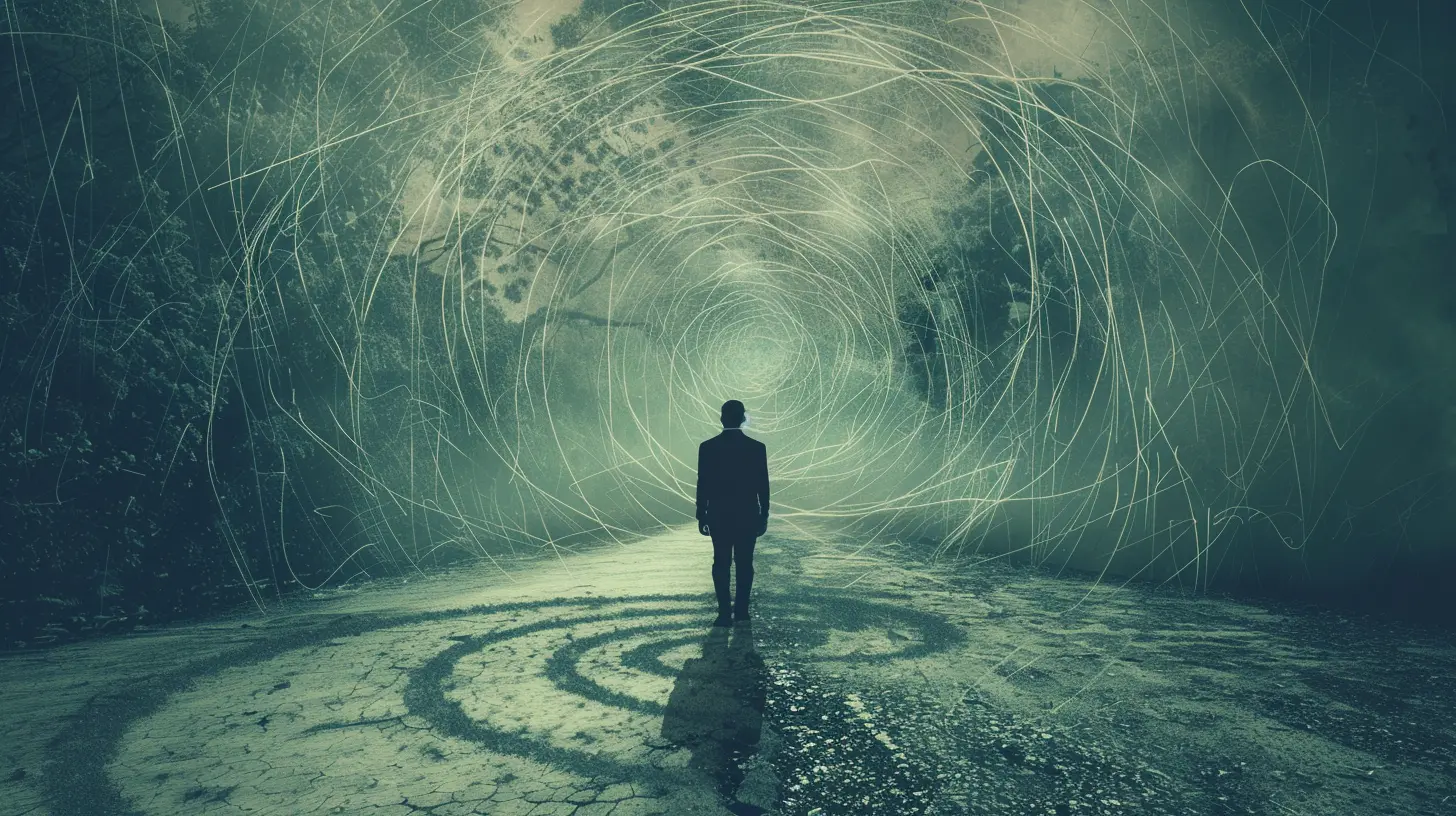The Psychology of Decision Avoidance: Procrastination and Fear
17 July 2025
Let’s be real—how many times have you stared blankly at a restaurant menu for 15 minutes, overwhelmed by too many pasta choices, only to blurt out, “I’ll just have what they’re having”?
We’ve all been there. From big life decisions like changing careers to small stuff like updating your phone’s software, putting things off or dodging decisions altogether is a weirdly common human behavior.
So, why do we avoid making decisions—even when we know we shouldn’t?
This quirky little journey we’re going on today explores the fascinating world of decision avoidance, particularly how procrastination and fear fuel this odd psychological habit. Buckle up—because we're about to psychoanalyze the hell out of your to-do list.
What Is Decision Avoidance, Anyway?
Let’s break it down without the psychobabble.Decision avoidance is what happens when we dodge making a choice—either by delaying it, letting someone else decide for us, or just pretending the decision doesn’t exist. It’s like watching the clock tick closer to your deadline and convincing yourself that maybe it’s not that important.
The mind games begin.
Some folks avoid choosing between two birthdays to attend. Others avoid deciding whether to break up with someone who still thinks pineapple on pizza is a crime.
Different stakes. Same avoidance.
The Inner Tug-of-War: Why We Avoid Making Decisions
So, what’s going on up there in the noggin? Why do we avoid making choices—even small ones?1. The Paralyzing Pressure of Perfectionism
Raise your hand if you’ve ever been afraid to make a decision because it might not be the right one.🙋🏽♂️
Welcome to the club.
When perfectionism enters the chat, suddenly one decision becomes a potential landmine of regret. The fear of messing it up leads to “analysis paralysis”—aka overthinking everything so much that you do… absolutely nothing.
It’s like trying to pick the perfect avocado and ending up with none because they’re all too soft or too firm. And you walk away empty-handed, again.
2. Fear: The Real MVP Behind Decision Dodging
At the heart of decision avoidance is good ol' fear—fear of failure, fear of regretting your choice, fear of judgment, or even fear of success (yes, that’s a thing).Sometimes, our brain treats decisions like saber-toothed tigers. It sees danger where there is none. So instead of making a move, we freeze. Or flee. Or doom-scroll TikTok to escape reality.
Fear hijacks the brain like a bad roommate—rude, loud, and always turning off the lights when you need them on.
3. Cognitive Overload: When the Brain Short Circuits
Ever feel like your brain just… can’t?That’s cognitive overload. In today’s world, we’re flooded with choices—from toothpaste brands to career paths. The sheer weight of options fries our circuits, and the brain, being the lazy genius it is, chooses avoidance instead.
Let’s face it: sometimes “I don’t know” is easier than “I need to choose from 47 options.”
Procrastination: Decision Avoidance in Sweats
Procrastination is decision avoidance’s shady cousin. They’re basically inseparable.We don’t necessarily say, “I’m not going to do this,” but instead say, “I’ll do it later”—which is modern-day code for “Never, unless I’m under duress or out of pizza.”
It’s not about laziness. It’s about emotional regulation. Our minds often delay action to dodge the discomfort that comes with making decisions. Whether it’s fear, anxiety, or self-doubt, procrastination is like a security blanket made of Netflix, snacks, and Instagram reels.
Decision Avoidance in Real Life (Prepare to Feel Seen)
Okay, story time.Let’s say you’re offered a job in another city. It pays more but means moving away from your comfort zone. You start making pros and cons lists, you talk to five different friends, you Google "what should I do?" at 2 a.m., and then… you do nothing.
Weeks go by. Maybe the offer expires.
Welcome to decision avoidance in action. You had a chance to move forward, but the fear and uncertainty kept you frozen.
Another example? Ghosting someone you’re dating instead of breaking up. Brutal, but deeply psychological. It’s easier to disappear than to deal with potential confrontation and hurt feelings.
Decision avoidance isn’t just a mental quirk—it shows up in relationships, work, finances, and even what to watch next on Netflix.
The Biology of Why You Wait
Let’s nerd out for a second.Your brain’s prefrontal cortex is the part responsible for decision-making, future planning, and logic. But it has to share the brain stage with the amygdala, your fear and emotion center.
When a decision feels risky, the amygdala can hijack your rational thinking, triggering a fight-or-flight reaction. So instead of making that phone call or clicking “submit,” you open a bag of chips and clean your inbox.
Not because you’re lazy—but because your brain is legit wired to avoid perceived threats. Even if the threat is just an awkward conversation.
The Many Faces of Decision Avoidance
Decision avoidance doesn’t always look like inaction. Sometimes it puts on a disguise.1. Delegation
You don’t choose—you ask your roommate, mom, or co-worker to choose for you. It feels like relief, but it’s often avoidance by proxy.2. Defaulting
Instead of deciding, you go with the default option. You don’t unsubscribe from that streaming service or change your phone plan because it’s easier to let things stay the same.3. Postponement
Classic procrastination. The “I’ll deal with it tomorrow” hack that turns into next week, next month, or never.4. Outlook-Based Avoidance
This one's sneaky. Sometimes we don’t decide because the options are emotionally loaded or ambiguous. Like ending a long-term friendship that doesn’t feel right anymore.Hard choices light up the brain's discomfort zone. So, we put them in a mental drawer labeled “Later,” and slam it shut.
How to Stop Avoiding Decisions (Without Stress-Sweating)
Okay, enough diagnosing. You want solutions, right?Here’s how to gently pry yourself out of the decision-avoidance trap without triggering full-blown panic:
1. Shrink the Decision
If something feels overwhelming, break it down. Don’t decide on your next five years—just decide what you’ll have for lunch. Tiny wins build confidence. Your brain loves that dopamine hit.2. Set a Decision Deadline
Ever notice how you become super efficient when a deadline is looming? Create your own. Give yourself a time frame: “I’ll decide by Friday at 3 p.m.” Add a reward if needed. (Chocolate works.)3. Embrace the "Good Enough" Mindset
Perfection is a myth—especially when it comes to choices. Rather than seeking the perfect decision, aim for a satisfying one. Think of it as going for the 80% win instead of chasing 100% fantasy.4. Talk It Out
Voice your thoughts to someone you trust. Sometimes hearing it out loud helps process those swirling thoughts. It’s like emptying a cluttered drawer—you finally see what’s inside.5. Accept the Fear (Then Do It Anyway)
Being afraid doesn’t mean you’re on the wrong path. Fear is just a sign that something matters. Don’t wait for the fear to disappear—act with it in tow. Like a nervous sidekick.Quirky Truth: We Actually Enjoy Some Decisions
Here’s a plot twist: we sometimes avoid big decisions but get a kick out of small, inconsequential ones.What flavor ice cream to grab at the store? Fun.
What college to go to? Cue existential dread.
The brain sees low-stakes decisions as opportunities—but high-stakes ones as threats. That’s the psychology of it. It’s not you. It’s your wiring.
Final Thoughts: You're Not Broken, You're Human
Avoiding decisions doesn’t mean you're weak, lazy, or a hot mess. It means you’re human.We’re all walking paradoxes—craving control, but fearing responsibility. Longing for change, but dreading what it might bring. Don’t judge yourself for procrastinating or sidestepping tough choices. Instead, get curious about why.
Ask yourself: What am I really afraid of? What’s the worst that could happen? What’s the best?
And most importantly, what tiny step can I take today?
Because even the smallest decision is a vote for the person you’re becoming.
all images in this post were generated using AI tools
Category:
Decision MakingAuthor:

Matilda Whitley
Discussion
rate this article
1 comments
Zanya Cross
This article beautifully encapsulates the struggle with decision avoidance. It’s a reminder that acknowledging our fears can empower us to make choices. Thank you for shedding light on this important topic!
August 1, 2025 at 2:30 AM

Matilda Whitley
Thank you for your thoughtful comment! I'm glad the article resonated with you and highlighted the importance of facing our fears in decision-making.


